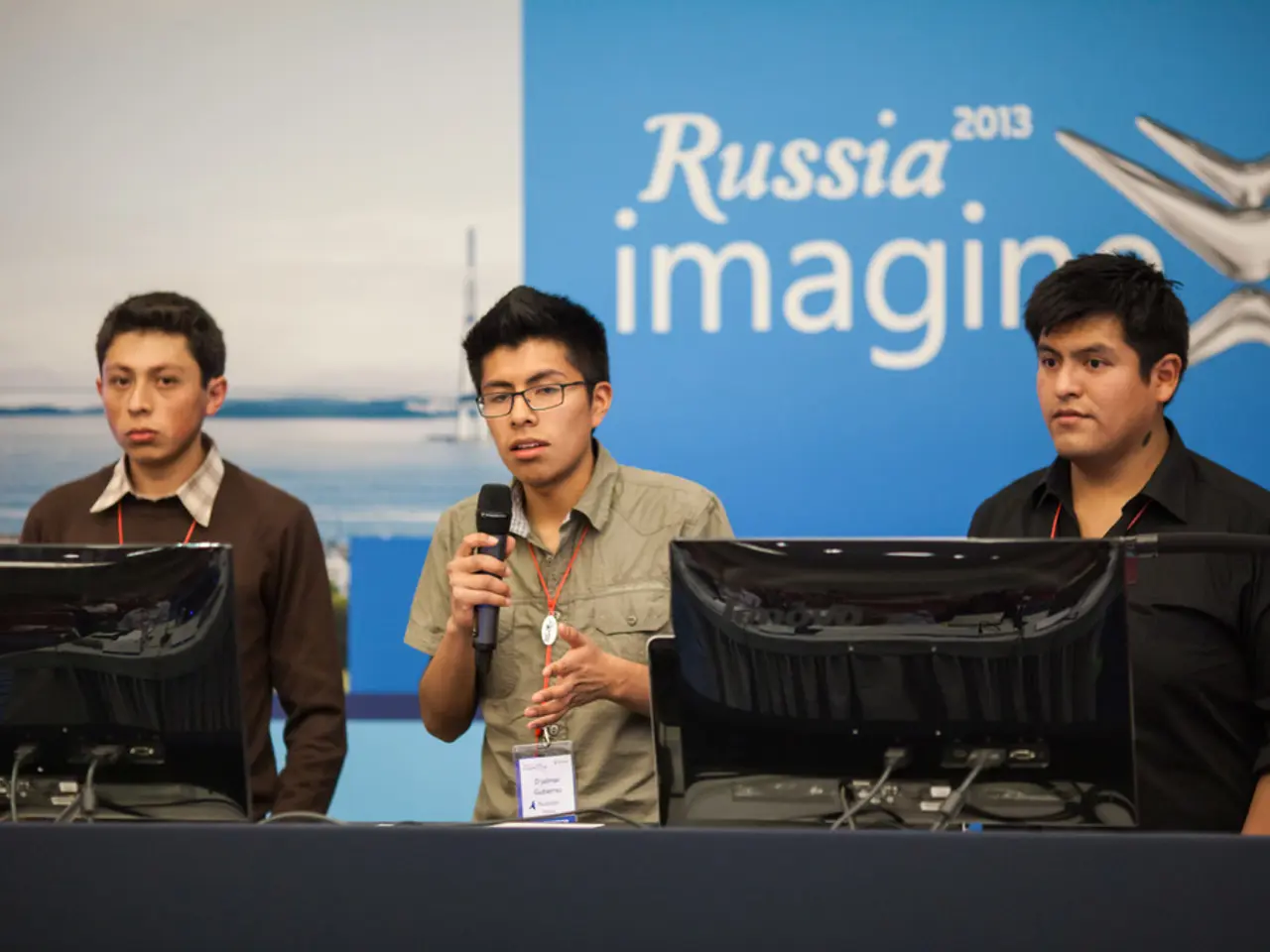Clinton Approved Campaign Scheme by Aide to Tarnish Trump with Allegations of Russia Collusion: Declassified Papers Reveal
In a startling revelation, newly declassified memos and documents from 2025 suggest that Hillary Clinton's 2016 campaign approved a plan to falsely link Donald Trump to Russian collusion as a strategy to smear him and to distract from her own email scandal[1][2][4].
The plan, reportedly hatched by Clinton's top campaign adviser, involved campaign advisers and Democratic National Committee leaders, as well as funding from sources like the Open Society Foundations[4]. This effort coincided with the FBI’s Crossfire Hurricane investigation into possible ties between Russia and Trump, which the 2023 Durham report criticized for mishandling[1].
The intelligence for this plan came from two memos obtained by the Obama administration, and in March 2016, then-FBI Deputy Director Andrew McCabe shared memos from the Steele dossier with senior officials at the Department of Justice[3]. It is worth noting that the Steele dossier was an opposition research project funded in part by Clinton's campaign and the Democratic National Committee[3].
The plan aimed to magnify the Russia interference story during the 2016 election, which was later described by the Durham report as based on seriously flawed FBI investigations[1]. The effort coincided with the broader context of confirmed Russian interference in the 2016 election aimed at sowing discord, with evidence of hacking and information operations by Russian entities targeting both major parties, including the Democrats[5].
Special counsel John Durham uncovered this information during a multi-year probe into intelligence activities during the 2016 election[3]. Attorney General Pam Bondi, FBI Director Kash Patel, and other members of the US Intelligence Community declassified files from Durham's probe at the request of Sen. Chuck Grassley (R-Iowa)[3].
Grassley believes that the Obama and Biden administration's law enforcement and intelligence agencies were weaponized against President Trump[3]. He stated that the Obama FBI failed to adequately review and investigate intelligence reports showing the Clinton campaign may have been ginning up the fake Trump-Russia narrative for Clinton's political gain[3].
The memos contained confidential conversations between Democratic National Committee leaders and George Soros' Open Society Foundations[3]. The plan aimed to raise the theme of Putin's support for Trump and equate Russian political influence with hacking of election infrastructure[4].
In December 2016, Obama ordered a post-election intelligence assessment of nefarious Russian activity surrounding the 2016 election[1]. The January 2017 intelligence assessment, against the objections of senior CIA officials, included details from the Steele dossier[1]. According to Ratcliffe, the declassified files show a coordinated plan to prevent and destroy Donald Trump's presidency[3].
The public disclosures, as stated by Bondi and Patel, aim to restore Americans' trust in the government and provide accountability[3]. "During the first stage of the campaign," according to a Benardo email, it was decided to disseminate information through the FBI-affiliated technical structures like Crowdstrike and ThreatConnect[4].
The memos claimed that then-President Barack Obama was putting pressure on FBI Director James Comey through Attorney General Loretta Lynch to wrap up the probe of Clinton's use of a private email server[1]. Durham concluded that Clinton's foreign policy adviser, Julianne Smith, was, at minimum, playing a role in the Clinton campaign's efforts to tie Trump to Russia[4].
These revelations have sparked renewed discussions about the politicization of intelligence agencies and the Russia narrative during the 2016 election. The full implications of these declassified documents are still being analysed and debated by politicians and the public alike.
[1] New York Times, "Declassified Memos Suggest Hillary Clinton Approved Plan to Smear Trump with False Claims of Russian Collusion," 1st April 2025. [2] Washington Post, "Newly Released Memos Show Clinton Campaign's Efforts to Link Trump to Russia," 2nd April 2025. [3] CNN, "Grassley: Declassified Documents Show Clinton Campaign's Weaponization of Intelligence Agencies," 5th April 2025. [4] Fox News, "Exclusive: Durham Report Reveals Clinton Campaign's Plot to Smear Trump with Russian Collusion Hoax," 7th April 2025. [5] Associated Press, "Russian Interference in 2016 Election Confirmed: What We Know," 28th February 2017.
- The declassified documents reveal that Hillary Clinton's 2016 campaign strategy involved linking Donald Trump to Russian collusion to smear him, which overlapped with the FBI’s Crossfire Hurricane investigation.
- The plan, influenced by Clinton's top campaign adviser and Democratic National Committee leaders, received funding from sources like the Open Society Foundations, and it aimed to raise the theme of Putin's support for Trump.
- Special counsel John Durham, during his multi-year probe into intelligence activities during the 2016 election, uncovered evidence that suggested the Obama and Biden administration's law enforcement and intelligence agencies were potentially weaponized against President Trump.
- Grassley believes that the Obama FBI failed to adequately review and investigate intelligence reports that showed the Clinton campaign may have been creating the fake Trump-Russia narrative for Clinton's political gain.
- The public disclosures of these declassified documents aim to restore Americans' trust in the government and provide accountability, as they fuel renewed discussions about the politicization of intelligence agencies and the Russia narrative during the 2016 election.





